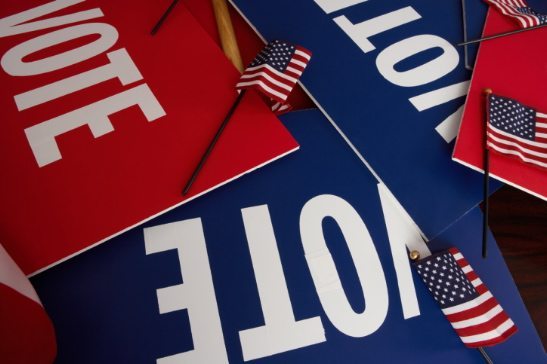The minimum wage is being increased among many U.S. states, and Arizona could be next.
The Nov. 8 ballot holds many choices that will impact Arizona’s future. Not only will voters have the opportunity to vote for the next president, but they will also be able to vote on raising the minimum wage.
Proposition 206 could raise the minimum wage to $10 in 2017, and then incrementally to $12 by 2020. It also creates a right to paid sick time off for employees. Currently, the Arizona minimum wage is $8.05, adjusted for cost of living. The federal minimum wage is $7.25 an hour.
The proposal of Proposition 206 has garnered strong support from many Arizona officials and organizations. Arizonans for Fair Wages and Healthy Families is leading the support campaign.
Stephanie Vasquez, owner of Fair Trade Cafe, is a proponent for the initiative.
“This will not impact my business at all. I’m already in compliance with the 2020 goal,” Vasquez said. “When you have a business, your biggest investment is in your team. We find that the small businesses aren’t being affected because they are already invested in the community.”
The impact that the increased minimum wage might have on small businesses has been one of the most hotly contested arguments this election season. The Arizona Chamber of Commerce and Industry launched the Protect Arizona Jobs campaign in opposition.
According to the fiscal analysis of the proposition; an increase in the hourly minimum wage may result in higher labor costs for businesses in Arizona. To compensate for higher wage costs, busi-nesses may raise prices or reduce other labor costs. If they are unable to pass on the higher labor costs to consumers or raise their productivity, businesses may experience reduced profits and possibly reduced operations in the state. This could result in a decline in both employment and business activity.
“I feel if passed, this raise will have a dramatic negative effect on both small businesses and on employees,” said Oliver Bryan, owner of Oliver’s Sophisticated Bean. “It’ll be unfortunate be-cause, for the small guys to survive, we’ll have to cut both positions and employees hours.”
Dr. Brian MacFie, honors faculty professor in the department of economics at Arizona State Uni-versity, said he believes that it is “ a bad and muddle-headed idea.”
“The entry wage level is supposed to be a start point, not an end point,” explained MacFie. “To reduce poverty you need to have as many entry level jobs as possible as this allows people to move up the economic ladder because they gain work experience. The minimum wage simply reduces the number of entry level jobs available in the economy.”
“Part of this is humorous to me. It’s (minimum wage increase) already been done in other places. All we have to do is see how it impacted their economies. It’s basic economics,” Vasquez said.
According to The Washington Post, after Seattle raised its minimum wage to $11 an hour in April 2015, low-wage workers’ employment, hours and wages rose substantially. Workers em-ployed by thriving businesses who did not lose hours enjoyed the increase. However, workers who had a hard time finding a second job to make up for their lost hours earned much less.
Vasquez stressed that the increase would benefit families.
“How can you possibly raise a family and be an active parent at $8 an hour?”
A study conducted Aug. 17-21 by The Arizona Republic, Morrison Institute and Cronkite News shows that 61 percent of those surveyed supported Prop 206. Support was highest among demo-crats, voters ages 18 to 35 and people with a high-school diploma or less.
Maine and Colorado will join Arizona in November to vote on increasing their state minimum wages.




